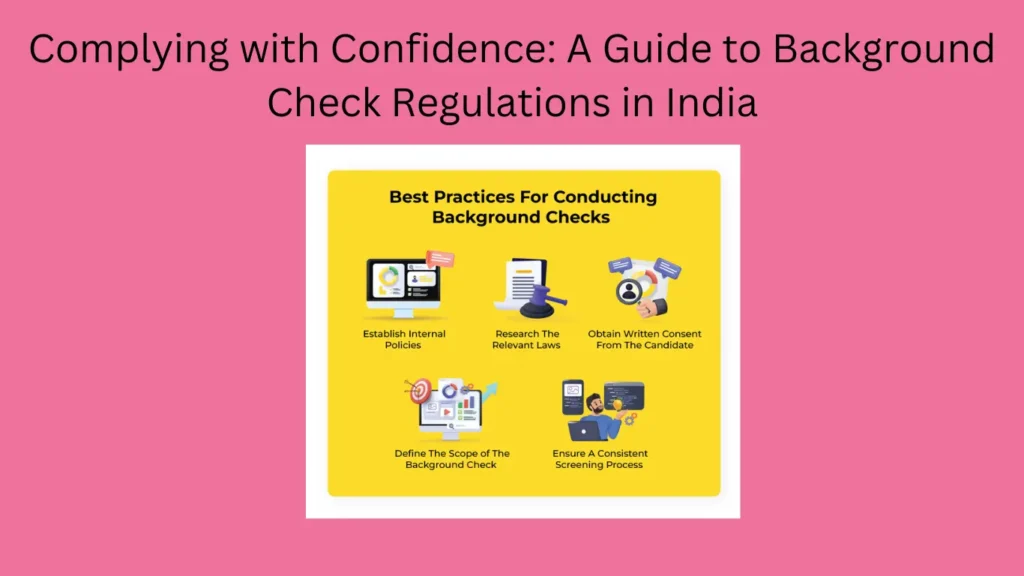Background checks are an essential part of the hiring process in India, ensuring that companies hire qualified and trustworthy employees. However, conducting background checks requires compliance with various regulations to protect the privacy and rights of individuals. This guide provides a comprehensive overview of background check regulations in India, focusing on creating helpful, reliable, people-first content.
Importance of Background Check Regulations
Privacy Protection: Regulations ensure that individuals’ personal information is protected during the background check process.
Fairness: Regulations promote fairness by ensuring that background checks are conducted uniformly for all candidates.
Key Regulations in India
The Personal Data Protection Bill: This bill aims to regulate the processing of personal data and protect the privacy of individuals.
The Aadhaar Act: The act governs the use of Aadhaar, India’s unique identification number, and restricts its use for verification purposes.
Conducting Background Checks in Compliance
Obtaining Consent: Employers must obtain written consent from candidates before conducting a background check.
Limiting Information: Background checks should only collect relevant information related to the job position.
Conclusion: Ensuring Legal Compliance
In conclusion, complying with background check regulations is crucial for protecting the privacy and rights of individuals. By following these regulations, companies can conduct background checks confidently, knowing that they are in compliance with the law.
For further Inquires Contact Us
FAQs
Q1: Why are background check regulations important in India?
A1: Background check regulations are important to protect the privacy and rights of individuals and ensure fair hiring practices by employers.
Q2: What is the Personal Data Protection Bill in India?
A2: The Personal Data Protection Bill aims to regulate the processing of personal data and protect individuals’ privacy in India.
Q3: How can employers comply with background check regulations in India?
A3: Employers can comply by obtaining written consent from candidates, limiting the information collected to job-related matters, and following key laws like the Aadhaar Act.
Q4: What are the consequences of non-compliance with background check regulations in India?
A4: Non-compliance can result in legal penalties, damage to reputation, and loss of trust with employees and customers.
Q5: Where can employers get more information about background check regulations in India?
A5: Employers can consult legal experts, industry associations, and government websites for more information on background check regulations in India.
